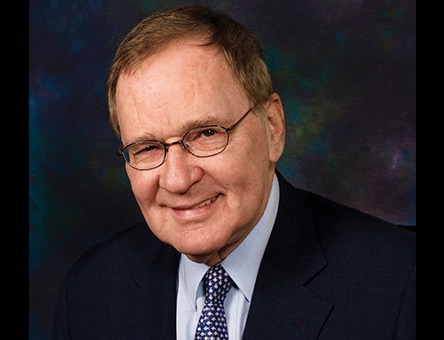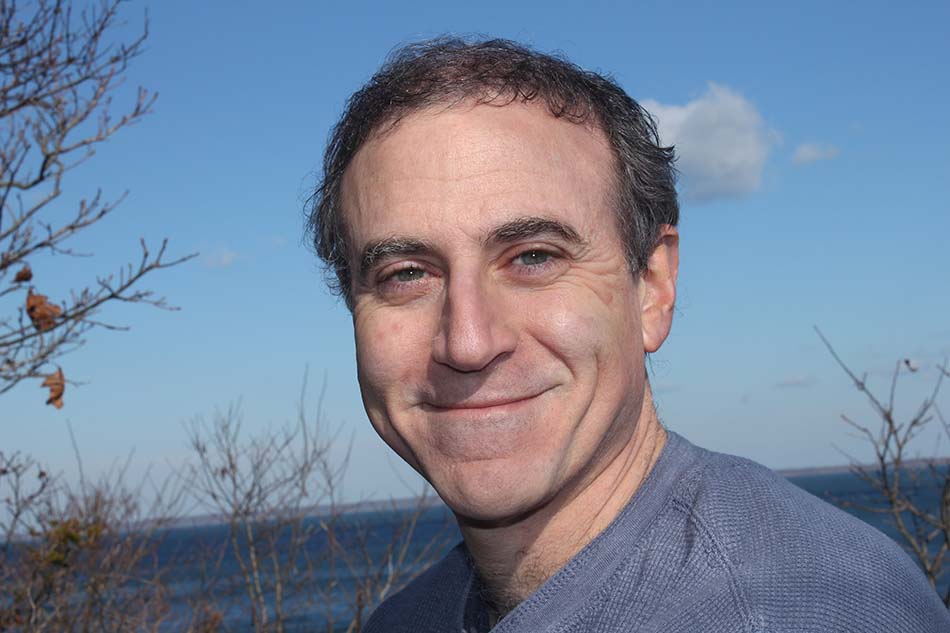Stuart Sucherman

The smarter way to stay on top of broadcasting and cable industry. Sign up below
You are now subscribed
Your newsletter sign-up was successful
In baseball, they say the great ones have the ability to slow the game down; a hitter at the plate watching a fastball can see the direction the seams are spinning off the pitcher’s fingers.
Stuart Sucherman, a lifelong baseball fan who grew up rooting for the Brooklyn Dodgers and is now on the board of the New York Mets, knows exactly what that feels like. Except that, for Sucherman, a legendary consultant and executive search guru, the field is the media business. Like the hall of famers he idolized as a kid, Sucherman perfected his craft and has thrived for decades with a Zen-like mix of skill and luck, experience and patience. Unlike the archetypical, cliché consultant, Sucherman succeeds by guiding his clients to find the solutions themselves, rather than ramrodding the answers. This is a man who, as they say, hits for both power and average, and is among the most valuable students of the game the industry has.
“Stuart has touched every aspect of broadcasting and television over the last 40 years,” says Jeff Zucker, president of CNN Worldwide. “He’s played a pivotal role in the careers of so many people and the fortunes of so many companies. Any time I didn’t ask him for advice in my career is when I got into trouble.”
“He has played in almost every sandbox,” adds David Zaslav, president and CEO, Discovery Communications. “He had a huge impact on the growth of NBC Cable, NBC News and Entertainment, and he is now having an impact at Time Warner and CNN. He had a big impact at Discovery with me, and with Comcast as they took over NBC, and at Viacom. He’s had an enormous impact on the industry.”
If you’ve read this far, you’ve also come up against another exceptional quality of Stuart Sucherman’s: his relative anonymity.
“He’s been the most secret guy,” says Zaslav, “because he’s always the guy behind the curtain that no one knows about.”
That’s exactly the way Sucherman has always played it, giving very few interviews and letting considerable word of mouth victories guide the fortunes of Sucherman Group.
The smarter way to stay on top of broadcasting and cable industry. Sign up below
“I always thought consultants should be heard and not seen,” he says. “And what was I gonna say? ‘XYZ Corporation had some issues and we helped clean them up.’ I’m sure my clients really wanted to read that. I’ve seen consultants say that and I’m appalled. Would it have helped our business? I guess so, but that’s not who we were.”
Sucherman’s modesty aside, his career is one for the ages, for which he credits equal parts luck and skill. Growing up in New York City, the son of immigrant parents who stressed the need for education, Sucherman graduated from the University of Michigan, got his law degree from UC Berkeley and began working at the FCC in the early 1960s. He hated it, and after speaking with his then-wife’s boss, famed international lawyer Philip Amram, he was introduced to the general counsel of National Education Television (NET), which was owned by the Ford Foundation and the Corporation for Public Broadcasting. Sucherman became assistant general counsel and then, after a stint in business affairs at CBS News, began working for Fred Friendly, one of the pillars of the golden age of TV news. Together they produced a series of televised educational seminars featuring some of the biggest names from government and ethics debating the most pressing issues of the day. For Sucherman, who edited the programs to 52 minutes each, it was an extraordinary challenge.
“Fred was a great influence on my life and career. He had a rule about editing—we couldn’t edit out of sequence,” Sucherman says of the debates that could go on for several hours. “We might be talking about topic A in the first hour and come back to it in the third hour, and we couldn’t use it. But it was great discipline and definitely the hardest thing I’ve ever done. It taught me to appreciate anything.” The other part of the luck equation: It was through Friendly that he met his second wife, Betsy Miller.
Working with Friendly also meant always thinking on your feet. In 1984, Sucherman went to Friendly’s house to discuss the filmed opening for a show and found his boss in the midst of a mild stroke. They called the ambulance—and Friendly then insisted they watch the tape as they waited. When it was over and the distracted Sucherman mumbled that the opening was “pretty good,” Friendly said, “You’re not just saying that because I’m having a stroke, are you?” Being at Friendly’s side was always a lesson in anything-goes hard work—also good preparation for the consulting career to follow.
“We’re not a big consulting firm,” Sucherman says. “We won’t swarm you with big numbers. Every problem is different, and the truth-telling piece of it is very important.”
His clients can attest to that. His influence has been felt at MTV, the Today show, Good Morning America, Discovery and many others, and he’s been central in huge decisions. Says Ed Scanlon, NBC’s longtime employee relations head, “Stuart and I significantly streamlined the business structure, creating a more competitive network. The years that followed were among the brightest and most profitable in NBC’s history.” Adds Mark Rosenthal, CEO of Katz Media Group, “Stuart focuses on where it matters most—making good networks great and making great networks even better. He’s all about content and superserving the audience.”
Now chairman of the group, and working alongside CEO Erik Sorenson, Sucherman’s company continues to thrive. In his office is a signed photo of Willie Mays uncharacteristically missing a fly ball—a reminder that some of the great ones stay in the game too long. Sucherman—now 77, and a fan of the Mets’ indefatigable pitcher Bartolo Colon—insists he’ll know when it’s time to leave, but his clients hope he remains in the game a lot longer.
“I have a fantastic marriage, great kids, supportive partner in Erik and great relationships. I’ll keep doing this till I shouldn’t.”
Rob has written for Broadcasting+Cable since 2006, starting with his work on the magazine’s award-winning 75th-anniversary issue. He was born a few blocks away from Yankee Stadium … so of course he’s published three books on NASCAR, most notably, Full Throttle: The Life and Fast Times of NASCAR Legend Curtis Turner. He’s currently the special projects editor at TV Guide Magazine. His writing has appeared in The Washington Post and his origami art has been in The Wall Street Journal. He lives with his family in New Jersey and is writing a novel about the Wild West.

